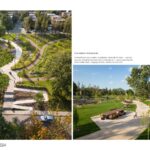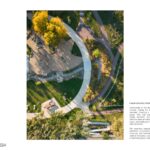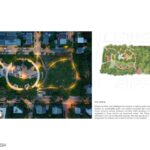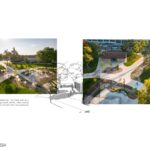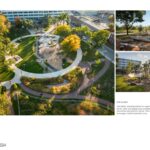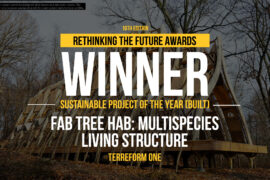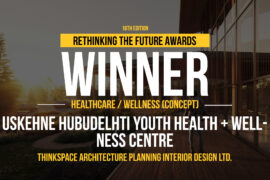Projet Paysage re-envisioned Rosemont Park in 2023 to make it a meeting point of ecological and social harmony. Committed to fostering ecological transition, the firm transformed a dated park space into a sanctuary that champions environmental issues and community well-being.
Rethinking The Future Awards 2024
First Award | Public Landscape (Built)
Project Name: Rosemont Park — The Urban Oasis
Category: Public Landscape (Built)
Studio Name: Projet Paysage
Design Team:
- Serge Gallant — Projet Paysage : Project Manager
- Gianna Cabanas — Projet Paysage : Lead Designer
- Axle Von Garde Cabahug — Projet Paysage : Designer
- André Gatien — Projet Paysage : Lead Construction Manager
- Juliette Gravel Savard — Projet Paysage : Construction Manager
Area: 13 000 square meters
Year: 2023
Location: Montreal, Quebec, Canada
Consultants:
- Éric Collard — Génipur : Engineering firm
Photography Credits: Vincent Brillant
Render Credits: Axle Von Garde Cabahug
Other Credits: None
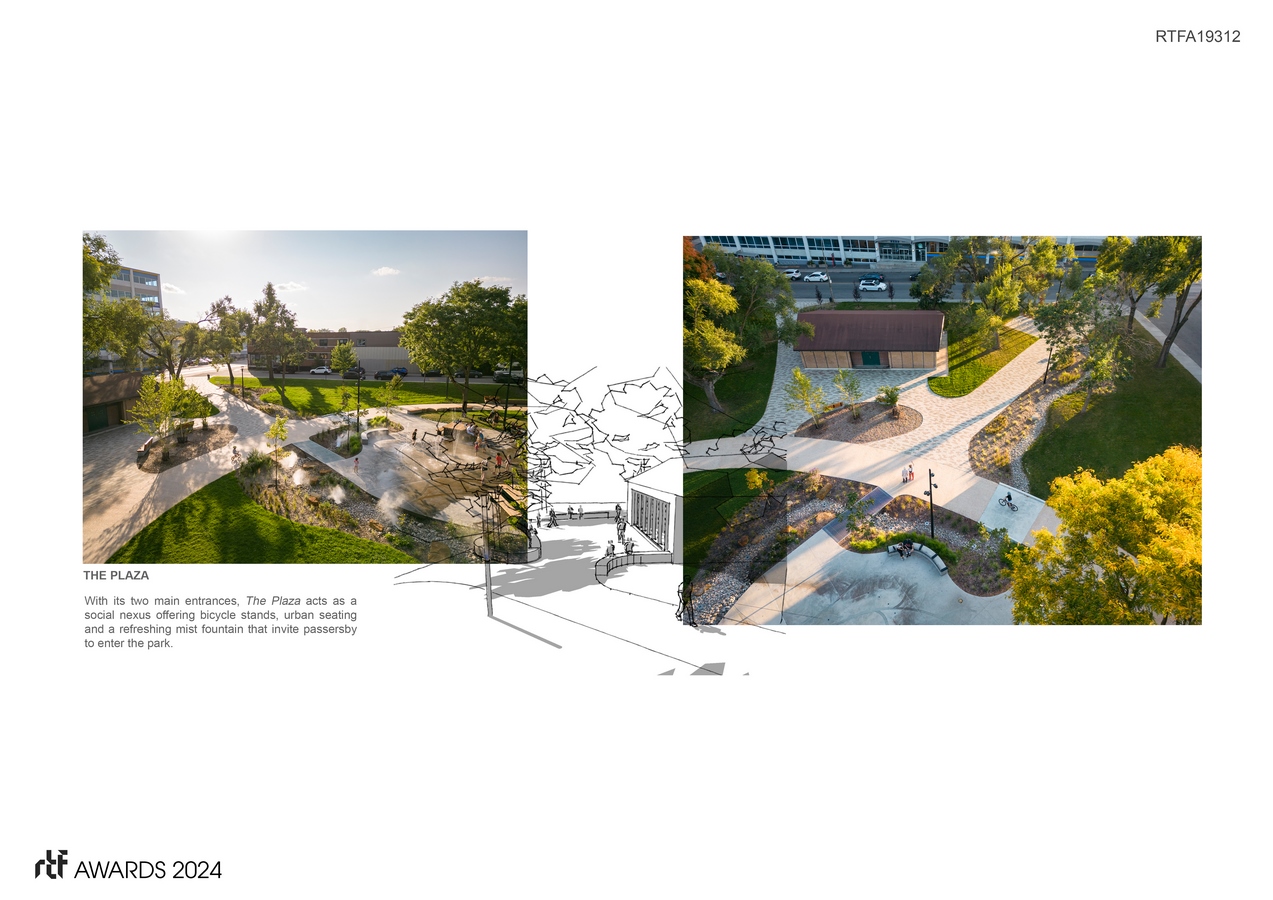
This project is a true example of modern urban design and planning with its innovative technologies and materials. The park was organized in three distinct yet connected areas: The Plaza, The Glade, and The Urban Woodland. Serving as a communal space for leisure, a playground for children, and a serene retreat for city dwellers, the park’s purpose is multifaceted.
The Plaza, with its bespoke urban furniture and refreshing mist fountain, offers a meeting place for neighboring communities throughout the year. With its clover cover, The Glade offers a wide-open and circular area contrasting with the park’s densely populated residential area. The ideal space for discoveries and physical activity. Projet Paysage integrated a playground built from wood to encourage imagination and creativity by encouraging children to trace their own journey through the installations. Finally, The Urban Woodland — a microforest inspired by the Miyawaky method — brings resilient canopy to this peaceful sanctuary, thus enriching the biodiversity. The forest was created by planting hundreds of trees, including various species such as fruit trees and honey plants, and preserving the park’s older trees, bringing the total number of trees to over 550. This initiative not only diversifies the park’s flora but also invites the community to partake in the simple joys of harvesting, fostering a deeper connection between the residents and the land they share.
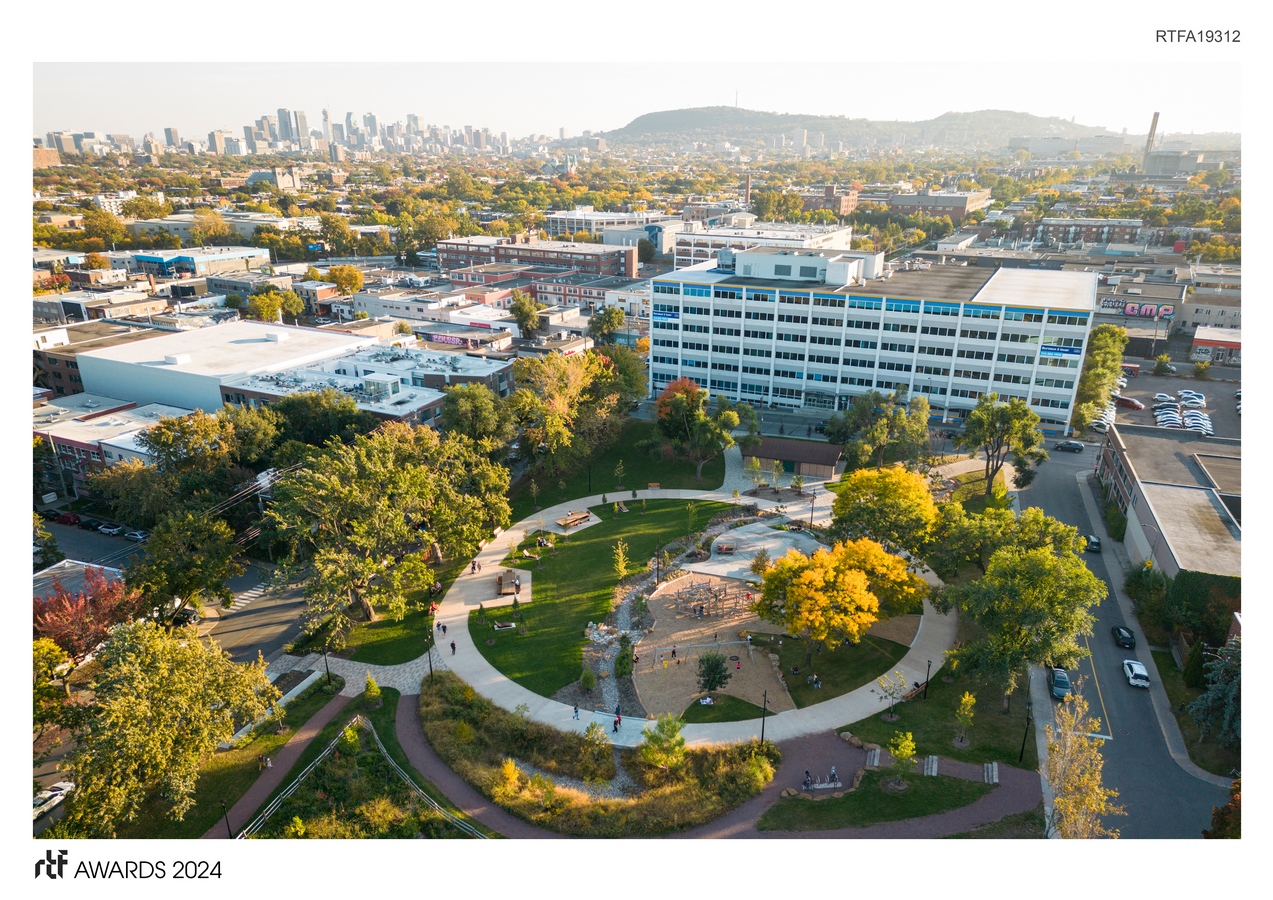
Instrumental to the design is the sponge park concept, making the entire area — including the marked paths — permeable to rainwater. Creating a climate change resilient space. This was achieved through different design elements, including a dry river to help direct runoff water as well as using Solecol — a resin bound permeable paving material — to make the trails absorbent. These pathways offer a delicate connection network between the various areas and become ice-skating paths in the winter to optimize the parks use all year long.
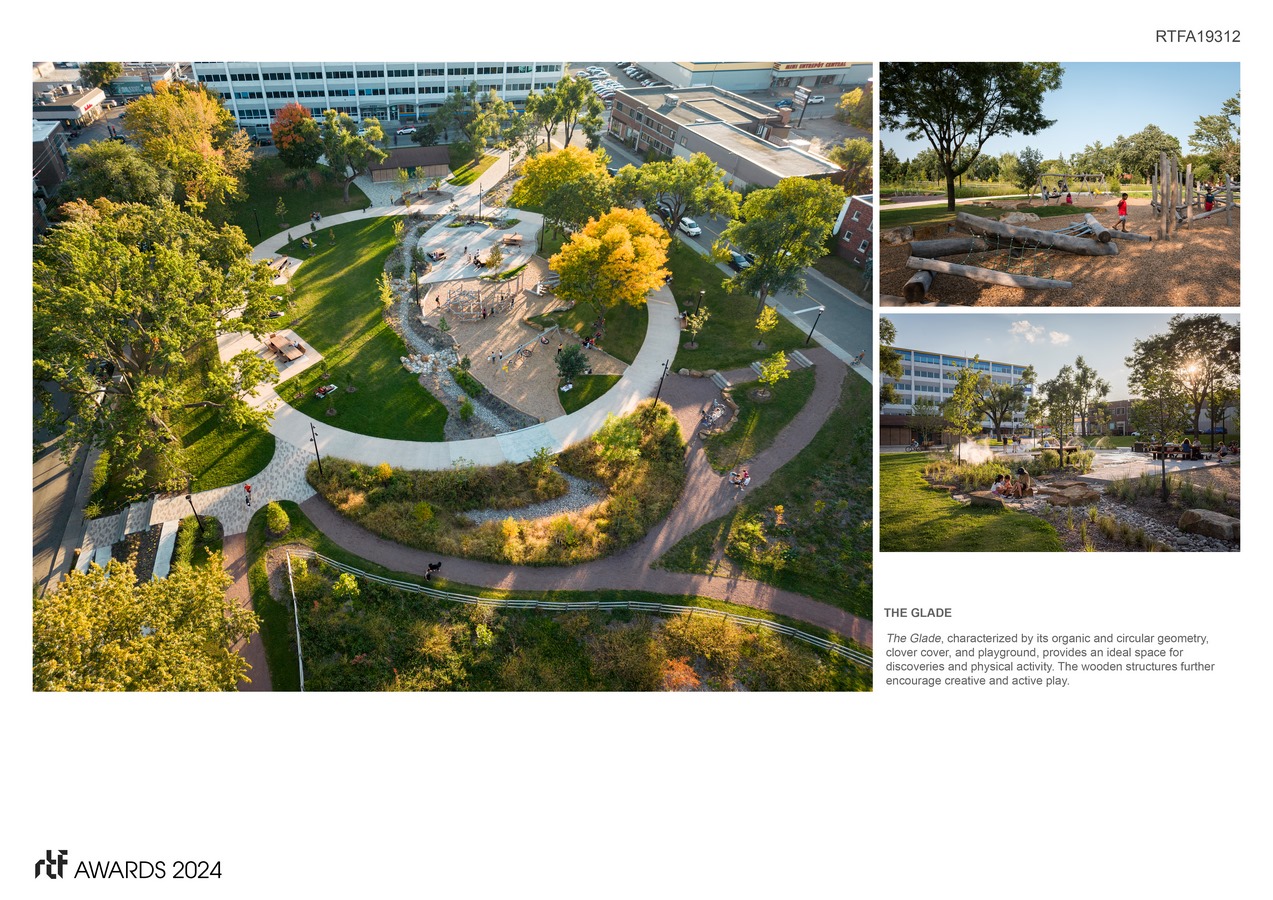
Rosemont Park is no longer just a place but a living system that breathes with the community, evolves with the seasons, and grows with the natural world it nurtures. It is a vital green lung for the city, enhancing air quality, supporting urban wildlife, and contributing to the emotional and physical health of the residents. The firm’s ability to weave functionality with aesthetics, environmental sensitivity with social inclusivity, and technological advancement with material innovation, positions this urban oasis as a captivating green space.


